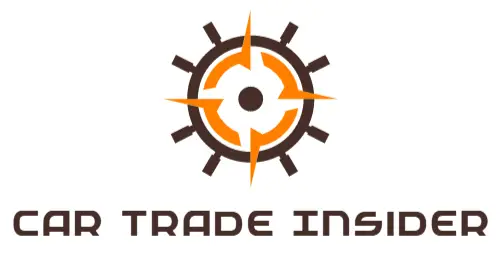In the world of car buying, finding the perfect vehicle that checks all your boxes can be quite a challenge. You walk into a dealership, and while they have the right make and model, they don’t have the exact color and options you desire.
What do you do in such a situation? Can a dealership get a car from another dealership to meet your specific requirements? This article aims to demystify the concept of “dealer trades” and provide you with insights into this process.
Understanding the Need
When a customer walks into a dealership, they may have a very specific car in mind. It could be a particular color, trim level, or even a limited edition model.
While some car dealerships carry an extensive inventory, it’s impossible for any single dealership to have every possible combination available.
This means that they may not always have the exact car a customer is looking for. In such cases, dealerships must explore alternative solutions. This is where the need to source a car from another dealership arises.
Do Dealerships Trade Cars with Each Other?
Yes, Car dealerships usually have an extensive network of contacts within the automotive industry. This network can be invaluable when trying to find a specific car. Dealerships can contact other dealerships directly to inquire about the availability of a particular vehicle.
If the requested car is in stock at another dealership, negotiations can begin for a trade. This process is known as “dealer-to-dealer” sales or dealer swaps.
Suppose you’re looking for a specific make and model of a car that your local dealership doesn’t have in stock. Instead of losing your business, the dealership can initiate a trade with other dealerships that do have the desired car. This allows you to get the vehicle you want without the hassle of visiting multiple dealerships.
Pro Tip: Always verify the availability of the car you’re interested in, even if it’s listed at multiple dealerships. As what you see online isn’t always what you get in reality.
How Dealer Trades Work
Dealer trades, also known as dealer swaps, are a convenient way for car dealerships to access a broader inventory of vehicles. Here’s how the process typically unfolds:
- Customer Request: When a customer expresses interest in a particular car that’s not available at their local dealership, the dealership can request a dealer trade.
- Negotiation: The involved dealerships negotiate the terms of the trade, which include the condition of the vehicle and any additional fees.
- Transportation: Once the trade is agreed upon, the cars are transported to their respective dealerships, making them available for purchase.
Benefits of Using a Dealer Trade
Using a dealer trade to get the car you want offers several advantages:
- Expanded Options: Dealer trades provide access to a wider range of vehicles beyond what a single dealership may have in stock.
- Time Savings: It saves you time and effort, as the dealership handles the process of acquiring the car for you, eliminating the need to contact multiple dealerships.
- Competitive Pricing: Dealerships may offer competitive pricing for dealer trade vehicles. Additionally, financing and warranty options may be available, which are often unavailable when buying from a private seller.
- Convenience: You only need to work with one dealership, the one you initially engaged with, making the process more straightforward.
- Speed: Dealer trades are typically faster than custom-ordering a car.
Cons
While dealer trades can be beneficial, they come with their share of risks and limitations:
- Vehicle Condition: The vehicle you trade for may not be in the expected condition or may have higher mileage than advertised.
- Delays: The trade process can sometimes take longer than anticipated, delaying your ability to get the car you want.
- Geographic Limitations: Some dealerships may be unwilling to trade with those outside of their area, limiting your options.
- Additional Fees: Some dealerships may charge extra fees or markups for facilitating the trade, increasing the overall cost. Factors like the condition of the vehicle, its rarity, and market demand all play a role in determining the price.
Conclusion
In summary, dealer trades can be a practical solution when you’re seeking a specific car that’s not available at your local dealership. They expand your options, save you time, and can often lead to competitive pricing. However, it’s essential to be aware of the potential risks and limitations, such as vehicle conditions and extra fees.
If you’re considering a dealer trade, communicate clearly with the dealership, ensure all agreements are in writing, and advocate for the best possible deal. With the right approach, a dealer trade can simplify the car-buying process and help you get the car you want at a reasonable price.
Frequently Asked Questions
Is a dealer trade the same as buying a car online?
No, a dealer trade involves one dealership exchanging vehicles with another to meet a customer’s specific requirements, while buying a car online typically means purchasing a vehicle from a dealership’s existing inventory.
What happens if the traded vehicle is not in the expected condition?
If the traded vehicle doesn’t meet the expected condition, it’s essential to discuss the issue with the dealership and potentially negotiate a resolution.
Can I negotiate the price of a dealer trade?
Yes, you can negotiate the price of a dealer trade, but it’s crucial to settle the price before the trade and have the agreement in writing.
Are there any additional fees associated with dealer trades?
Some dealerships may charge extra fees or markups for facilitating a dealer trade, so it’s essential to clarify these costs upfront.
Can a dealership ship a car to another dealership?
Yes, a dealership can ship a car to another dealership, although it does require a certain amount of coordination. Auto transport companies play a significant role in the process, which is why dealerships often have good relationships with this type of car shipping company.
What should I do if a dealership is unwilling to trade with another dealership?
If one dealership is unwilling to trade with another, you may explore alternative options or consider visiting a dealership with a similar vehicle to inspect it before making a decision. Here is how you find the best car dealerships in your area.




